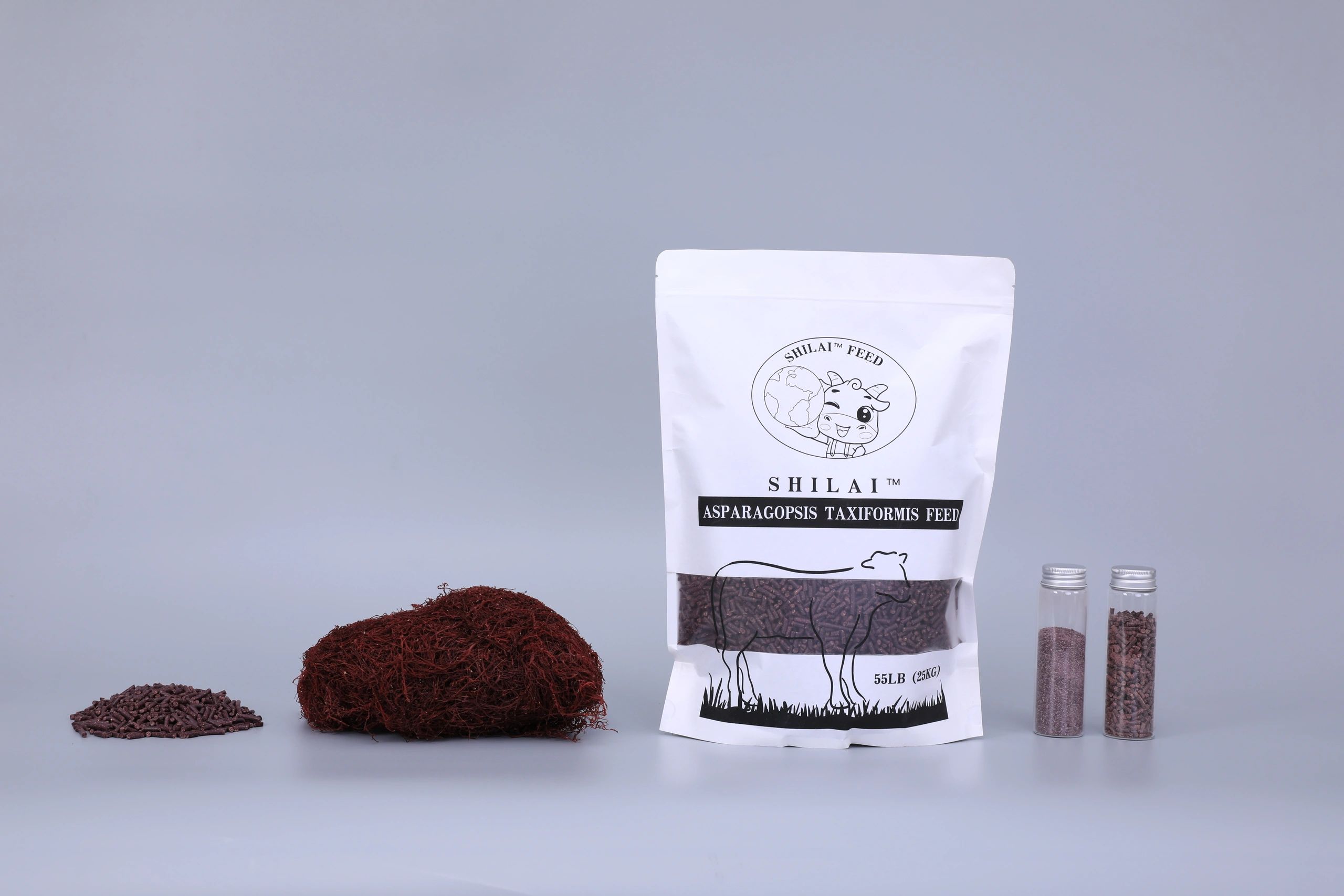Farming worldwide represents a substantial fraction of greenhouse gas emissions, principally from animal husbandry.
Due to its much greater warming potential relative to carbon dioxide, methane emissions are a high-priority target for mitigation.
The red seaweed Asparagopsis taxiformis is under study for its capacity to reduce methane emissions from livestock digestion.
Contained within the alga is a bioactive molecule that suppresses methanogenesis in the rumen and reduces total methane emissions.
Mixing Asparagopsis taxiformis into diets has produced trial outcomes that support its potential as a real-world methane mitigation tool.
- Asparagopsis taxiformis also contributes extra advantages that can support sustainable farming transitions.
- Greater nutrient uptake and robustness
- Potential to create a sustainable and circular economy in the agricultural sector
Ongoing research and development are warranted, yet Asparagopsis taxiformis already shows compelling potential to lower agricultural emissions.
Leveraging Asparagopsis taxiformis Powder to Improve Animal Feeds
A powdered or concentrated form of Asparagopsis taxiformis has the potential to reshape animal feed approaches and outcomes.
This marine plant contains bioactive and nutritional traits that can enhance livestock performance and productivity.
Incorporating A. taxiformis powder into feed blends has been shown to reduce methane emissions in trials while also supplying key micronutrients.
Continued scientific trials are needed to calibrate doses, processing techniques, and longitudinal effects on livestock.
Asparagopsis taxiformis: Toward More Sustainable Livestock Systems

The red alga is earning traction as a tool to mitigate the ecological harms linked to conventional livestock production.
Integrating the algae into feeds may allow producers to substantially reduce on-farm methane emissions and environmental impacts.
Scientific work suggests Asparagopsis can deliver both environmental and animal health/productivity advantages.
Large-scale implementation and chronic impact assessment remain to be proven, yet preliminary results are highly encouraging.
Using Asparagopsis as a Feed Additive to Reduce Methane

This red alga is being developed as an approach that can substantially cut methane produced by grazing ruminants.
The seaweed’s effect stems from its ability to inhibit methanogenesis, the microbial process that creates methane in the rumen.
- Published experiments indicate that Asparagopsis supplementation can substantially lower methane emissions in ruminants.
- The strategy of adding Asparagopsis to feed aligns with sustainable agricultural practices for emissions reduction.
- There is growing industry momentum toward trialing Asparagopsis as part of feed strategies.
Asparagopsis: Seaweed Driving New Directions in Animal Agriculture
Marine research points to Asparagopsis taxiformis as a promising intervention to reduce livestock methane emissions.
- Feeding trials with Asparagopsis demonstrated substantial methane declines, supporting its environmental promise.
- The development offers a hopeful route to balance food security and environmental protection through methane mitigation.

Within the portfolio of climate mitigation approaches, Asparagopsis is notable for its novel potential to lower methane from animals.
Optimizing Methane-Cut Feed with Asparagopsis taxiformis
Studies concentrate on ideal handling, formulation, and application rates to make A. taxiformis-based feeds most effective.
The Science Behind Asparagopsis taxiformis's Methane-Lowering Effects
The observed methane reduction results from the seaweed’s compounds that hinder the growth and function of methanogenic microbes.
The seaweed’s methane reduction is associated with bromoform compounds, which are under active investigation for mechanisms and risk assessment.
Incorporating Asparagopsis into Feed Recipes to Advance Sustainable Production
The combination of nutritive content and functional compounds makes Asparagopsis suitable for practical feed inclusion.
Incorporating the species into feeds may raise nutrient levels, optimize digestion, and contribute protective antimicrobial actions.
Asparagopsis taxiformis: Nature-Driven Gains for Food System Sustainability
Asparagopsis taxiformis represents an emerging, nature-based intervention to lower agricultural emissions and support sustainable food systems.
- Moreover, the species supplies nutrients that can enhance the dietary profile of feed formulations.
- Scientists and industry experts are actively exploring its uses across aquaculture, agriculture, and food production sectors.
Mainstreaming Asparagopsis use has the potential to achieve measurable reductions in the environmental effects of livestock agriculture.
Benefits of Asparagopsis Feed Additive on Animal Health and Productivity
Asparagopsis shows promise as a multifunctional feed additive that supports emissions reduction and animal performance.
Findings indicate the seaweed may improve digestive efficiency and feed conversion, positively affecting growth metrics.
The algae may also exhibit antioxidant and immune-supporting properties that help fortify animal resilience and reduce disease risk.
Growing market and regulatory interest in emissions reduction underscores the potential role for Asparagopsis as development continues.
Asparagopsis Feed Strategies: Moving Toward a Carbon-Neutral Future
With pressure rising to decarbonize food production, Asparagopsis provides a credible option to lower the sector’s greenhouse gases.
- The scientific consensus points to the seaweed’s compounds as inhibitors of rumen methanogenesis, limiting methane output.
- Experimental work has shown promising methane decreases associated with Asparagopsis supplementation in diets.
Beyond being a lower-emission feed choice, the approach could help reorient food production to align with climate resilience goals.